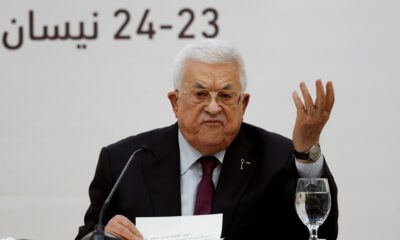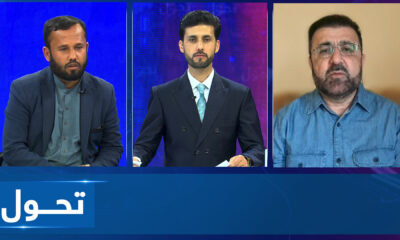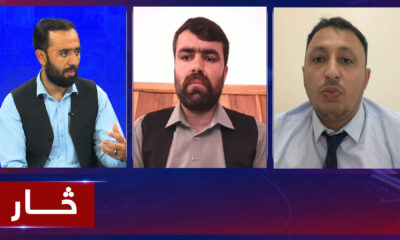Regional
Iran announces list of six approved candidates for June 28 elections
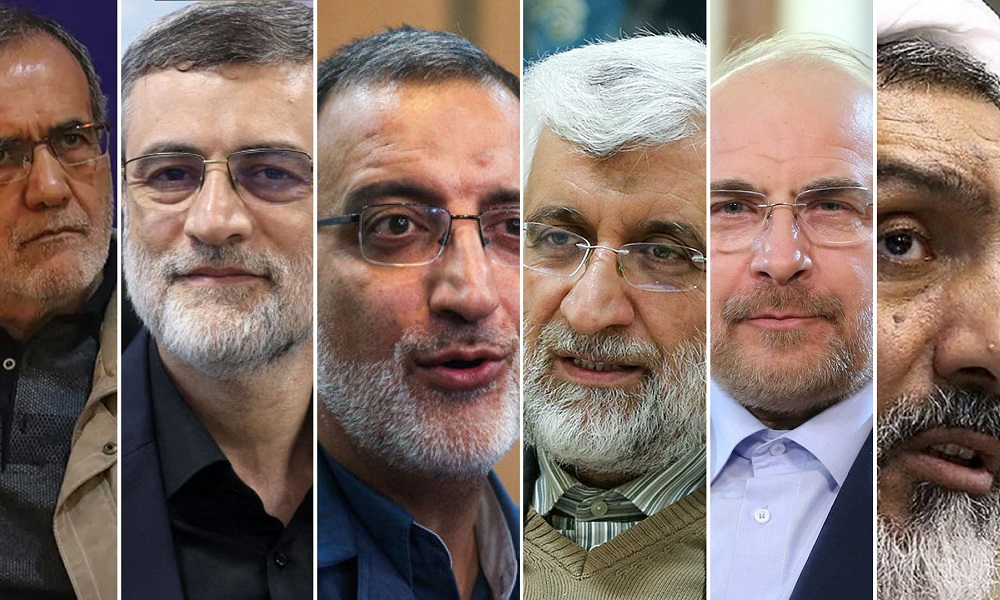
Iran’s Guardian Council, a 12-member election supervisory body, has finalized the list of candidates for president and submitted it to the Interior Ministry, Mohsen Eslami, the spokesperson for Iran’s Election Headquarters, confirmed.
According to IRNA, the council finalized the candidate list for the 14th presidential election on Sunday.
Six candidates have been named. They are Mostafa Pourmohammadi, Massoud Pezeshkian, Amirhossein Ghazizadeh, Alireza Zakani, Saeed Jalili, and Mohammad Baqer Qalibaf.
Elections have been called for June 28 and come in the wake of president Ebrahim Raisi’s death in a helicopter crash on May 19.
Head of parliament, Qalibaf, 62, who is a former military commander, has been seen as a potential front-runner. In a speech last week, Supreme Leader Ayatollah Ali Khamenei seemed to signal his support for Qalibaf, analysts have said.
The council also approved the candidacies of lawmaker Pezeshkian; Jalili, a former nuclear negotiator and Khamenei’s representative on the Supreme National Security Council; Tehran Mayor Zakani; Ghazizadeh, a conservative deputy to Raisi; and Pourmohammadi, a former interior and justice minister.
Regional
Palestinians establish vice presidency post, no candidate named yet

The Palestinian leadership approved the creation of the position of vice president of Mahmoud Abbas, and possibly his successor, on Thursday, a step widely seen as needed to assuage international doubts over Palestinian leadership.
A statement published by state news agency WAFA said 170 members of the Palestinian Central Council, the Palestinians’ highest decision-making body, voted in favour of the decision, while one member voted against it and another abstained, Reuters reported.
They have not immediately appointed someone to the role. According to the statement, Abbas has the right to assign tasks to the deputy, relieve him of his post, or accept his resignation.
Abbas, 89, has headed the Palestine Liberation Organisation (PLO) and the Palestinian Authority (PA) since the death of veteran leader Yasser Arafat in 2004 but has for years resisted internal reforms, including the naming of a successor.
The Western-backed Palestinian Authority exercises limited rule in the Israeli-occupied West Bank and has not governed Gaza since fighting a civil war with Hamas in 2007.
Regional
Iran can’t enrich uranium, could only import it for civilian program, Rubio says
Iran has denied wanting to develop a nuclear weapon and says its nuclear program is peaceful. U.S. and Iranian officials will meet in Oman on Saturday for a third round of talks.
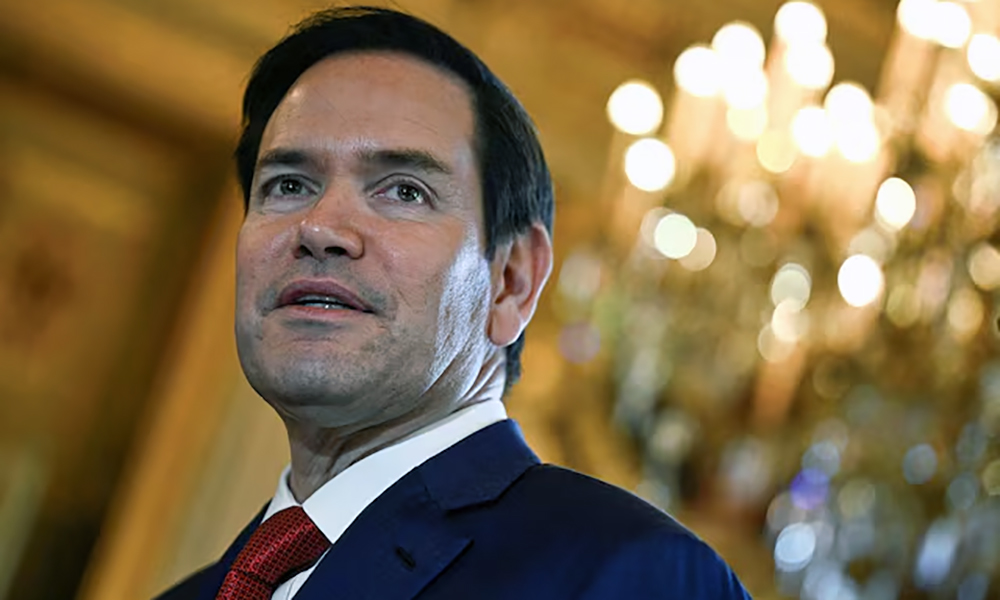
Iran will have to stop enriching uranium under any deal with the United States and could only import what is needed for a civilian nuclear program, U.S. Secretary of State Marco Rubio said ahead of talks between Tehran and Washington on Saturday, Reuters reported.
However, Iran has already made clear that its right to enrich uranium is not negotiable. When asked about Rubio’s comments, a senior Iranian official, close to Iran’s negotiating team, again said on Wednesday “zero enrichment is unacceptable.”
The U.S. is seeking to prevent Iran from developing a nuclear bomb and President Donald Trump has imposed a “maximum pressure” campaign of sanctions and threatened to use military force if Iran does not end its nuclear program.
Iran has denied wanting to develop a nuclear weapon and says its nuclear program is peaceful. U.S. and Iranian officials will meet in Oman on Saturday for a third round of talks on Tehran’s disputed nuclear program.
“There’s a pathway to a civil, peaceful nuclear program if they want one,” Rubio told the “Honestly with Bari Weiss” podcast on Tuesday.
“But if they insist on enriching, then they will be the only country in the world that doesn’t have a ‘weapons program,’ … but is enriching. And so I think that’s problematic,” he said.
U.S. Middle East envoy Steve Witkoff last week said Iran does not need to enrich past 3.67% – a remark that raised questions as to whether Washington still wanted Tehran to dismantle its enrichment program, read the report.
Witkoff then said a day later that Iran must “stop and eliminate its nuclear enrichment.”
Rubio said on Tuesday that Witkoff was initially talking about “the level of enriched material that they would be allowed to import from outside, like multiple countries around the world do for their peaceful civil nuclear programs.”
“If Iran wants a civil nuclear program, they can have one just like many other countries in the world have one, and that is they import enriched material,” he said.
The U.N. nuclear watchdog – the International Atomic Energy Agency – has said that Iran is “dramatically” accelerating enrichment of uranium to up to 60% purity, close to the roughly 90% weapons-grade level.
Western countries say there is no need to enrich uranium to such a high level for civilian uses and that no other country has done so without producing nuclear bombs.
Regional
Lavrov in Uzbekistan for talks on various issues including regional security matters
Lavrov is expected to meet with Uzbek President Shavkat Mirziyoyev and with Uzbek Foreign Minister Bakhtiyor Saidov
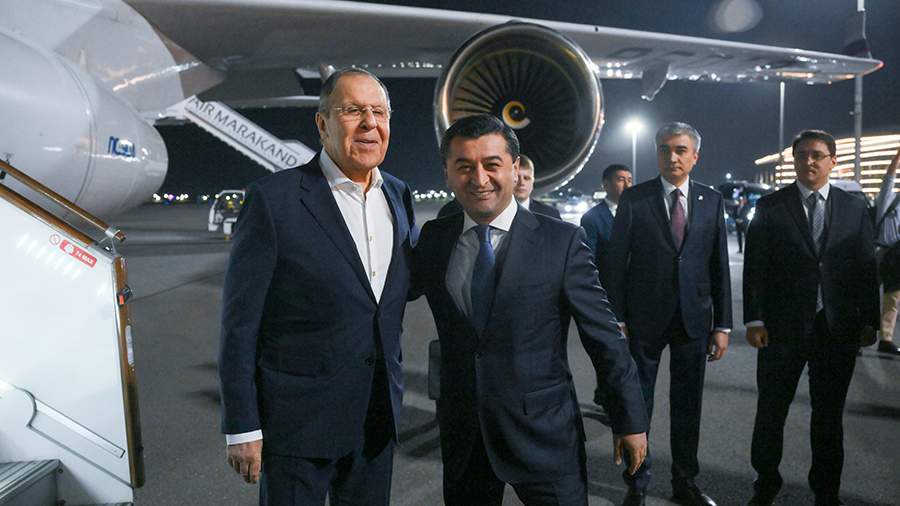
Russian Foreign Minister Sergey Lavrov will meet with Uzbek government officials this week to discuss bilateral relations, Eurasian integration and preparations for the upcoming 80th anniversary of victory over Nazi Germany.
The Russian Foreign Ministry’s official spokeswoman, Maria Zakharova, said Lavrov is expected to meet with Uzbek President Shavkat Mirziyoyev and will hold talks with Uzbek Foreign Minister Bakhtiyor Saidov, TASS reported.
“The sides will discuss current international issues of mutual interest, regional security matters, cooperation within the CIS, SCO and Central Asia-Russia frameworks, taking into account the closeness or similarity between Moscow and Tashkent’s approaches,” Zakharova said adding that “the agenda will also include matters of Eurasian integration processes with Uzbekistan’s observer status in the EAEU in mind.”
During his meetings with leaders of the Commonwealth of Independent States (CIS) last December, Russian President Vladimir Putin invited them to attend the Victory Day celebrations in Moscow scheduled to be held on May 9.
Also, military units from 19 friendly nations have been invited to participate in the Red Square Parade. The list of these countries has not yet been published, but Uzbek troops marched in the Red Square five years ago, during the 75th anniversary of Victory in the Great Patriotic War.
Uzbekistan traditionally holds numerous Victory Day celebrations and campaigns.
Meanwhile, the Russian Foreign Ministry has emphasized that Moscow and Tashkent have “constructive, respectful and mutually beneficial ties, based on the principles of friendship, sovereign equality and respect to each other’s interests.”
The sides actively cooperate in trade, energy, science and humanitarian affairs.
Special attention will be paid to the issue of labor migrants, as around 1.1 million Uzbek citizens are employed in various sectors in Russia.
Talks will also reportedly include Afghanistan, as this is an important subject for the two nations, TASS reported.
Other regional and global issues are also expected to be touched upon during Lavrov’s meetings with Uzbek officials in Samarkand.
-

 Latest News5 days ago
Latest News5 days agoPolio vaccination campaign launched in Afghanistan
-

 International Sports3 days ago
International Sports3 days agoIPL 2025: Robo-Dog ‘Champak’ explained
-

 International Sports5 days ago
International Sports5 days agoIPL 2025: 14-year-old Vaibhav Suryavanshi becomes youngest IPL player
-

 Latest News4 days ago
Latest News4 days agoAriana Afghan Airlines increases flights to China
-

 World4 days ago
World4 days agoPentagon chief Hegseth shared sensitive Yemen war plans in second Signal chat, source says
-

 Latest News4 days ago
Latest News4 days agoChina invites various Afghan delegations to attend Shanghai forums
-
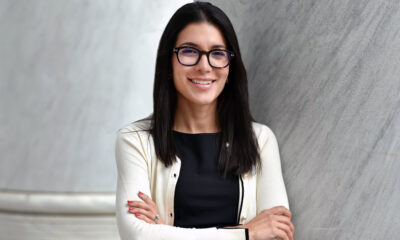
 Latest News3 days ago
Latest News3 days agoAfghan-American appointed to lead US policy on Afghanistan
-
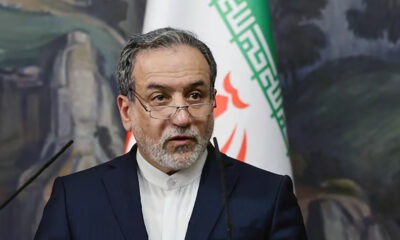
 Regional3 days ago
Regional3 days agoIran’s top diplomat to visit China on Tuesday


